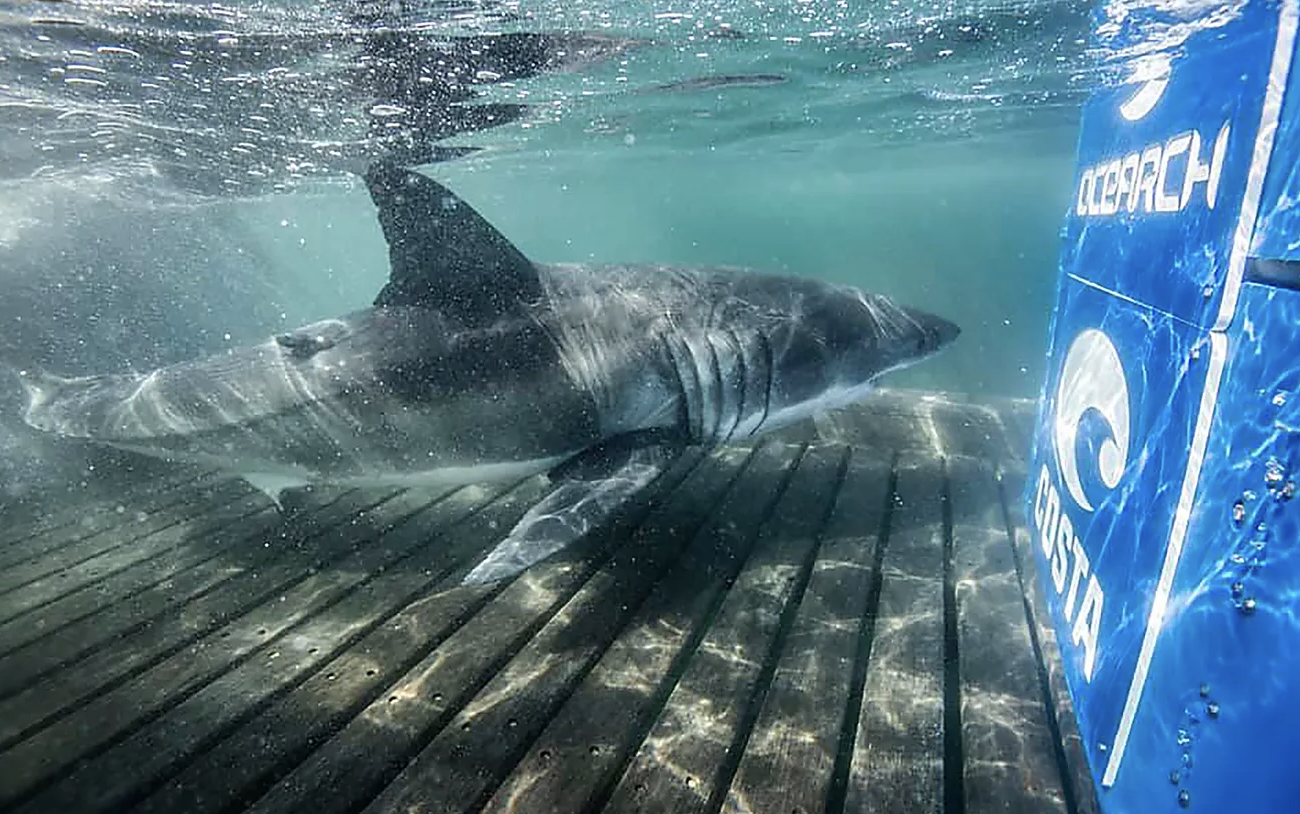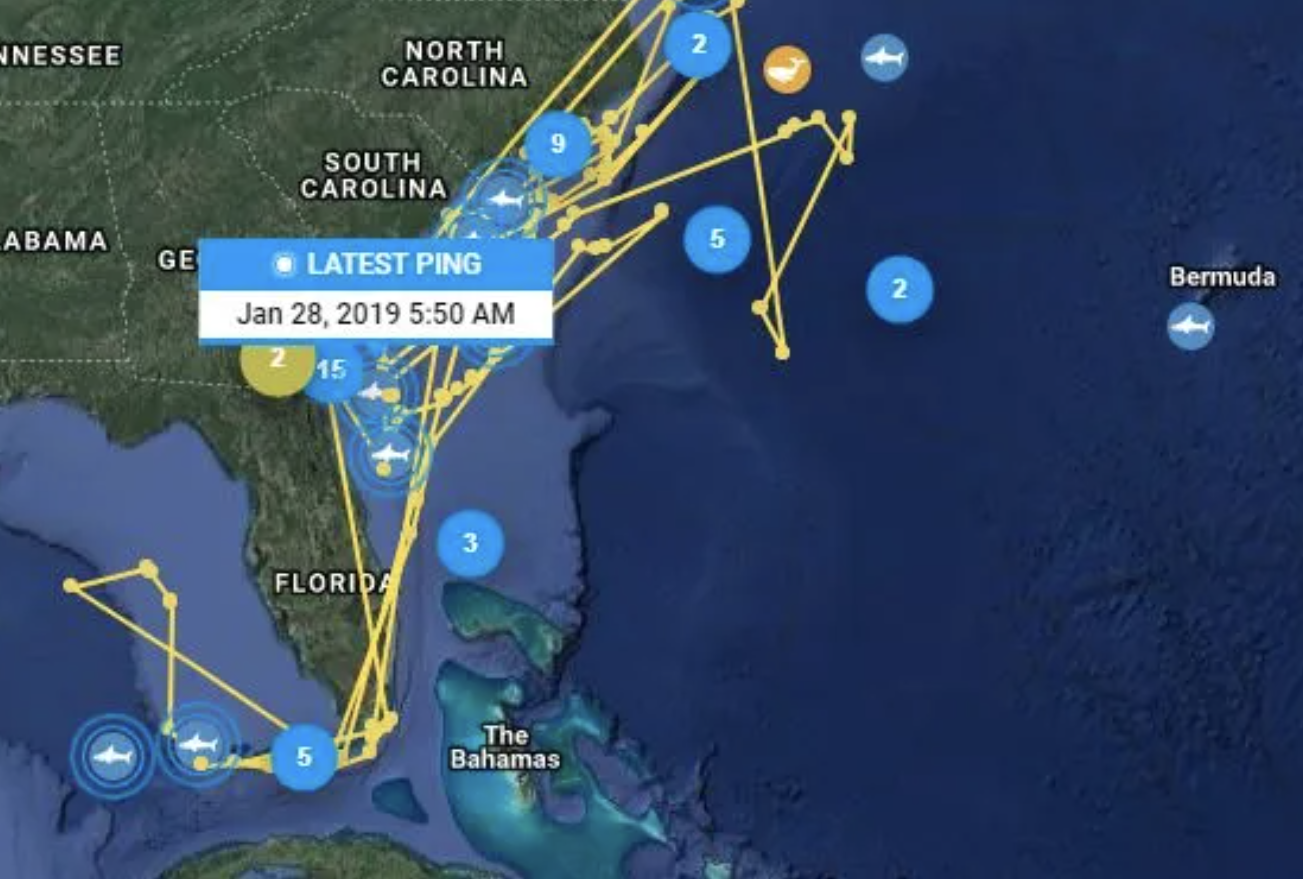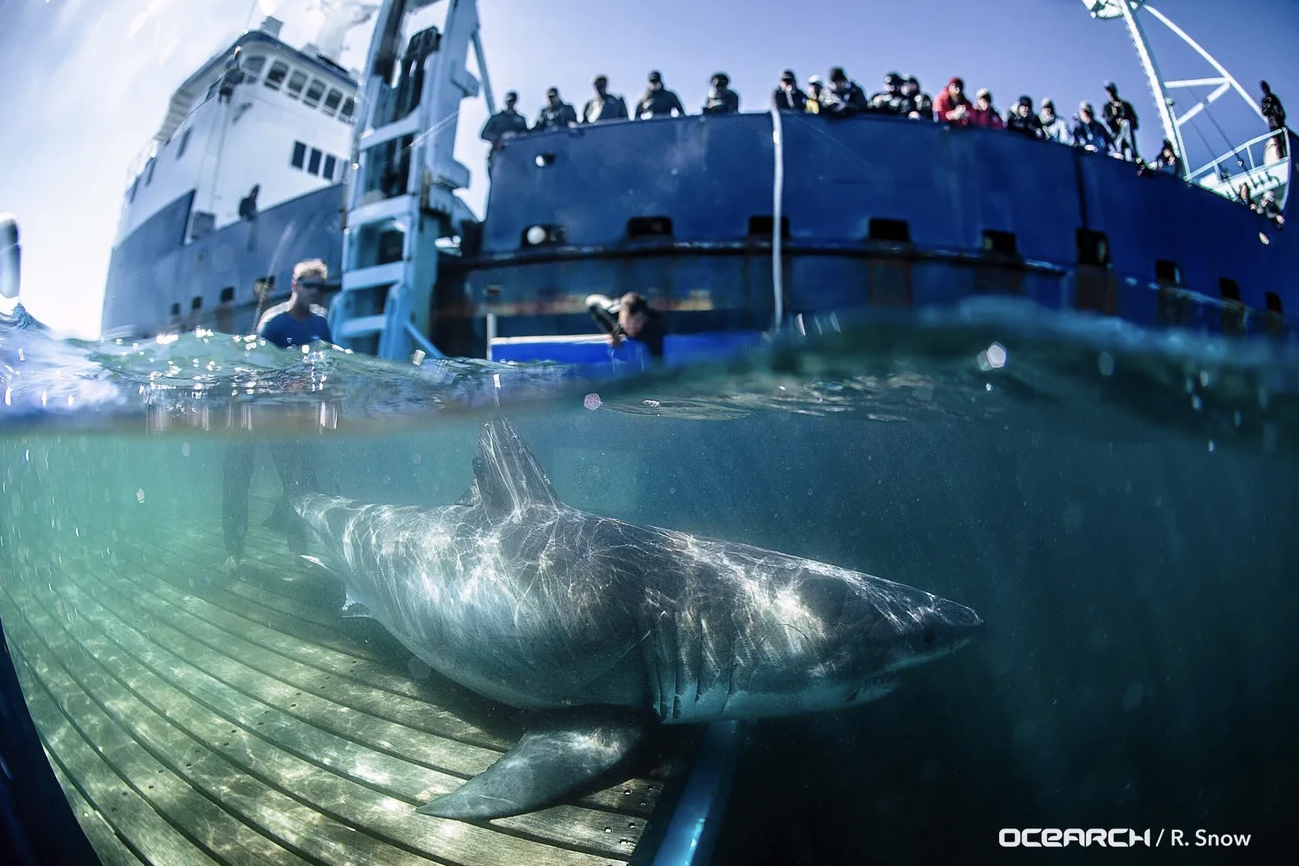Great White Sharks "Ping" Off Florida Shores
There's a bitey visitor in Gold Coast waters.
A 10-foot 5-inch great white shark named Rose has moved south after being tracked off the Treasure Coast Saturday and Sunday.
The 600-pound shark was outfitted with a satellite tag by the research group OCEARCH in 2020. The tag, attached to Rose's dorsal fin, sends a ping with location information to trackers when it breaks the water.
On Monday at 4:42 a.m., Rose pinged off Boynton Beach. She previously pinged off Stuart at 11:28 p.m. Saturday and off Juno Beach at the southern end of the Treasure Coast at 6:01 a.m. Sunday.
In the 1,234 days since she was tagged by scientists, Rose has traveled 14,826 miles. According to her tracker shows Rose has spent her winters around Florida since 2021, including the Gulf of Mexico in 2022 and 2023.
It's not unusual for great white sharks to be in Florida waters during the winter months. They migrate south in search of warmer water and food sources.
White shark Rose was tagged by OCEARCH scientists off Lunenburg, Nova Scotia on Oct. 4, 2020.
She measured 10 feet 5 inches, weighed 600 pounds and was classified as a juvenile shark.
Great white sharks can grow up to 20 feet long, but most are smaller with males averaging 11 to 13 feet.
According to OCEARCH, she was named after Rose Bay near where she was tagged.
White shark Jekyll tracked off Jacksonville, Jupiter Island
Jekyll, an 8-foot 8-inch white shark, pinged off Jacksonville Feb. 4 and Jupiter Island Feb. 7
The juvenile male white shark surprised scientists when they discovered he had been traveling for 4,000 miles alongside a 9-foot white shark named Simon. White sharks were previously thought to prefer only solitude.
But it appears Jekyll and Simon have parted company. Simon's tracker pinged in the Gulf of Mexico off Marco Island on Feb. 4, while Jekyll's pinged off Jacksonville on the same day.
Great white sharks in Florida?
Yes. White sharks migrate south when the water gets cold and food sources become scarce up north, according to OCEARCH chief scientist Dr. Bob Hueter.
Think of them as the snowbirds of sharks.
Most of them tend to stay away from the beaches in continental shelf waters, Hueter said.
What is OCEARCH?
OCEARCH is a nonprofit research organization studying the ocean's giants.
The group studies great white sharks and other keystone species essential for the health of the oceans.
OCEARCH recently finished up its 46th expedition, dubbed Expedition Southeast. It departed from Jacksonville on Nov. 17 and made its final docking in Morehead City, North Carolina on Dec. 15.
During the expeditions, researchers collected previously unattainable data on the animals' migrations, reproductive cycle, genetic status, diet, abundance, and more.
"If we lose the apex predator (sharks) then we lose all our fish and then there are no fish sandwiches for our grandchildren," OCEARCH founder Chris Fischer told the Courier Journal. "That's oversimplified, of course, but the idea is important because many shark species are threatened by overfishing and a demand for shark fins in Asia. Their dwindling numbers jeopardize ocean habitats."
Most shark attacks happen in Florida
There were 69 documented unprovoked shark attacks around the globe in 2023. The U.S. led the world with 36 attacks and Florida again was the state with the most bites at 16.
Florida shark attacks by county:
- Volusia County: 8
- Brevard County: 2
- St. Lucie County: 2
- Miami-Dade County: 1
- Palm Beach County: 1
- Escambia County: 1
- Pinellas County: 1
While the U.S. has the most attacks, South Africa has the most shark-related fatalities.
Since 1992, there have been 1,232 shark bites worldwide, according to data from floridapanhandle.com, with white sharks credited as the top biters.


